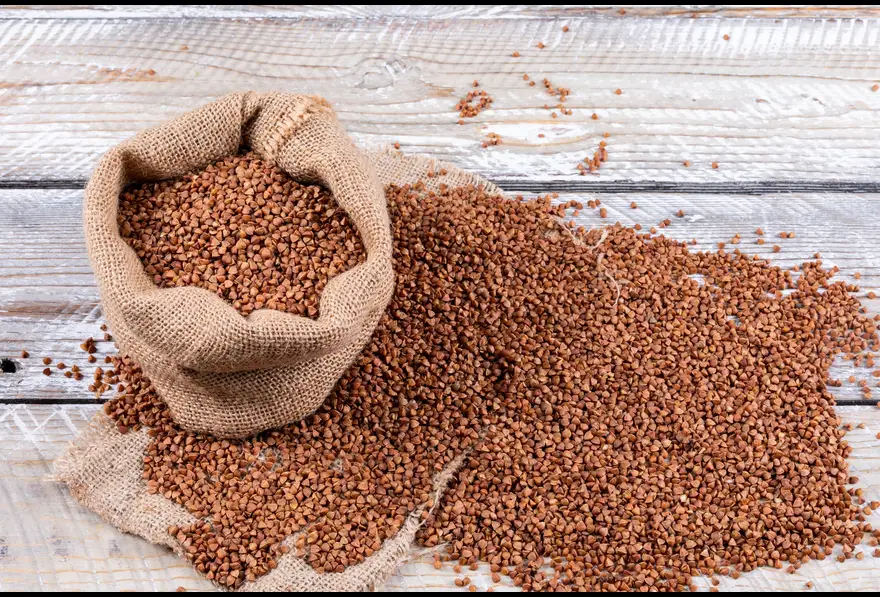Beta-D-Glucan Level by Protease Zymogen Colorimetry
Also known as: Beta D Glucan Level, Serum
Beta D Glucan Test Overview
The Beta D Glucan (BDG) test is a blood test designed to detect the presence of invasive fungal infections (IFIs) by measuring the levels of (1→3)-β-D-glucan in the bloodstream. Beta-D-glucan is a polysaccharide molecule found in the cell walls of many fungi, including yeasts and moulds. When the immune system detects BDG, it triggers an immune response to fight off the infection.
The Beta D Glucan test is particularly useful for identifying patients at high risk of IFIs, such as those with haematologic malignancies, organ transplant recipients, and critically ill patients. It can also be used to monitor the effectiveness of antifungal treatments by tracking changes in BDG levels over time. The test is valuable for the early detection of fungal infections, especially when other diagnostic methods like fungal cultures may take longer to yield results.
The "Beta-D-Glucan Level by Protease Zymogen Colorimetry" test is a valuable tool for diagnosing invasive fungal infections. It measures the levels of beta-D-glucan in a patient's blood, helping healthcare providers identify fungal pathogens like Candida and Aspergillus at an early stage, even before clinical symptoms appear or when other diagnostic methods may be inconclusive. This test is especially crucial for individuals with weakened immune systems or underlying health conditions that make them vulnerable to severe fungal infections. Early detection allows for prompt and targeted treatment, improving patient outcomes and reducing the risk of complications. However, results must be interpreted in context with the patient's clinical history to ensure accurate diagnosis and appropriate management. Overall, the Beta-D-Glucan Level test aids in timely intervention, enhancing patient care and prognosis.
Reasons for Undergoing the Beta D Glucan Test
There are several key reasons why a doctor may recommend the Beta D Glucan test:
- Diagnosis of Invasive Fungal Infections (IFIs): The test helps identify patients who are at high risk of developing IFIs, particularly those with compromised immune systems or underlying medical conditions.
- Monitoring Antifungal Treatment: The Beta D Glucan test can be used to assess the effectiveness of antifungal treatments by monitoring changes in BDG levels over time.
- Early Detection: The test is valuable for an early detection of the fungal infections, especially when other diagnostic methods may take longer to provide results, allowing for prompt treatment initiation.
List of Parameters Considered During the Beta D Glucan Test
The Beta D Glucan test measures the concentration of (1→3)-β-D-glucan in serum or plasma samples, and the results are categorised as follows:
- Concentration of BDG: The test quantifies the level of BDG in pg/mL. Negative results are less than 60 pg/mL, indicating no significant presence of fungal infection. Intermediate results range from 60-79 pg/mL and may require further investigation. Positive results are 80 pg/mL or higher, suggesting the presence of a fungal infection.
Beta D Glucan Test Preparation
There are no special preparations required for the Beta D Glucan test:
- No Fasting Required: Patients do not need to fast before undergoing the test.
- Sample Collection: A blood sample is collected in a plain (serum) tube, or sometimes bronchoalveolar lavage (BAL) fluid or cerebrospinal fluid (CSF) may be used.
- Storage and Transport: Samples should be stored at room temperature for up to 2 hours, refrigerated for up to 48 hours, or frozen for up to 2 weeks before testing.
Beta D Glucan Test Results & Interpretation
The results of the Beta D Glucan test are interpreted based on the concentration of BDG in the sample:
- Negative (0-60 pg/mL): Indicates no significant fungal infection.
- Intermediate (60-79 pg/mL): May indicate a possible infection, but further testing is recommended.
- Positive (≥80 pg/mL): Suggests the presence of a fungal infection. Multiple consecutive positive results increase the specificity of the test.
Home Collection for Beta D Glucan Test Near You
Home sample collection for the Beta D Glucan test simplifies the process for individuals. Metropolis Healthcare offers this service, where a trained phlebotomist visits your home to collect blood samples. This approach ensures comfort and safety while upholding strict standards for sample handling and testing accuracy.
Patients receive their results quickly and reliably, enabling them to manage their health effectively. Metropolis Healthcare focuses on making quality diagnostic solutions easily accessible at home.
Beta D Glucan Level, Serum Price
Metropolis Healthcare is a leading diagnostics centre and pathology lab in India equipped with the latest state-of-the-art technologies that provides the Beta D Glucan Level, Serum with a clear pricing structure.
The Beta D Glucan Level, Serum Price in Mumbai is ₹ 7,500 .
We are committed to deliver accurate and quality results from the best labs in India with complete transparency regarding test cost and turnaround time. No matter where you are, we strive to offer patients high-quality service that is affordable and accessible.
Frequently Asked Questions
This test measures the levels of Beta-D-Glucan in your blood.
This test is mainly done to diagnose invasive fungal infections. It helps in identifying the presence of these infections so that appropriate treatment can be initiated. Early detection is important to prevent complications associated with fungal infections.
Your doctor might recommend this test if you have symptoms suggestive of invasive fungal infections, such as persistent fever, unexplained weight loss, fatigue, or respiratory issues. Patients with compromised immune systems, such as those undergoing chemotherapy or organ transplantation, may also need this test for early detection.
Elevated levels may indicate the presence of invasive fungal infections, which can be serious if left untreated.
During this test, a small sample of your blood will be collected for analysis. The process is quick and relatively painless, involving a simple blood draw.
There are no specific preparations required for this test. However, it is important to inform your doctor about any medications you are taking, as some medications can interfere with the test results. Follow any instructions provided by your doctor regarding fasting or discontinuing certain medications. Please reach out to your healthcare provider for any specific requirements.
Other tests that may be ordered alongside this test include fungal cultures, PCR tests for specific fungal pathogens, and imaging studies such as CT scans or X-rays to assess the extent of infection or identify the affected area of the body.
Serum Beta-D-Glucan Test, Fungal Biomarker Test
Invasive fungal infections are serious infections caused by certain types of fungi that can invade various parts of the body, including the lungs, bloodstream, and organs. These infections can be life-threatening, especially in individuals with weakened immune systems. Early detection is crucial for effective treatment.
The Beta D Glucan test is a blood test that measures the levels of (1→3)-β-D-glucan, a component of fungal cell walls, in your bloodstream. It helps detect and diagnose invasive fungal infections, such as candidiasis or aspergillosis.
Yes, home sample collection is available for the Beta D Glucan test. A highly trained phlebotomist will collect your blood sample in the comfort of your own home.
Normal levels for the Beta D Glucan test are:
- Negative: Less than 60 pg/mL, indicating no significant fungal infection.
- Intermediate: 60-79 pg/mL, which may require further investigation.
- Positive: 80 pg/mL or higher, suggesting the presence of a fungal infection.
The Beta D Glucan test is used to diagnose invasive fungal infections, particularly in high-risk patients such as those with weakened immune systems. It also helps monitor the effectiveness of antifungal treatments and aids in early detection of fungal infections.
The frequency of Beta D Glucan testing depends on your clinical condition and your doctor's recommendation. High-risk patients may require more frequent testing, while others may need the test only when there's a suspicion of fungal infection.
There is no specific time recommendation for the Beta D Glucan test. Your doctor will advise you on when to get the test done based on your symptoms, medical history, and other clinical factors.
No, fasting is not required for the Beta D Glucan test. You can eat and drink normally before the test unless your doctor provides specific instructions.
Are there any other precautions to be taken before getting myself tested for the Beta D Glucan test?
Before Beta D Glucan test, inform your doctor about any medications or supplements you're taking, as some may interfere with the test results. Also, avoid recent infusions of IVIG or albumin, and certain medical procedures like haemodialysis.
The Beta D Glucan test measures concentration of (1→3)-β-D-glucan in picograms per millilitre (pg/mL) in serum, plasma, bronchoalveolar lavage (BAL) fluid, or cerebrospinal fluid (CSF) samples.
The Beta D Glucan test should be done when there's a clinical suspicion of an invasive fungal infection, especially in high-risk patients such as those with haematological malignancies, organ transplant recipients, or critically ill individuals.
The Beta D Glucan test procedure itself takes around 90 minutes, including pretreatment and measurement steps. However, the overall process from sample collection to reporting may take about a week.
Typically, you can expect to receive the Beta D Glucan test reports within 24 hours based on the date/time when the sample is collected and processed. However, this may vary depending on the lab and other factors.
Ratings & Reviews (0)
Why Metropolis?
Metropolis has a team of 200 senior pathologists and over 2000 technicians delivering diagnostic solutions in the areas of routine, semi specialty and super specialty domains like Oncology, Neurology, Gynaecology, Nephrology and many more.
We offer a comprehensive range of 4000+ clinical laboratory tests and profiles, which are used for prediction, early detection, diagnostic screening, confirmation and/or monitoring of the disease.



















 WhatsApp
WhatsApp